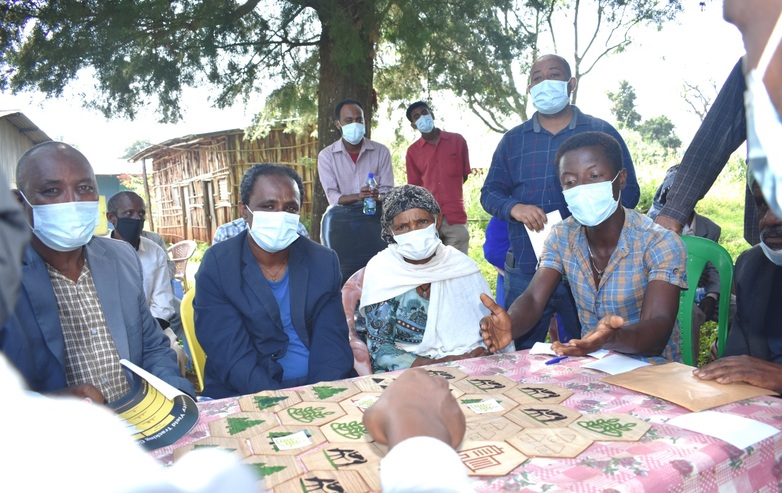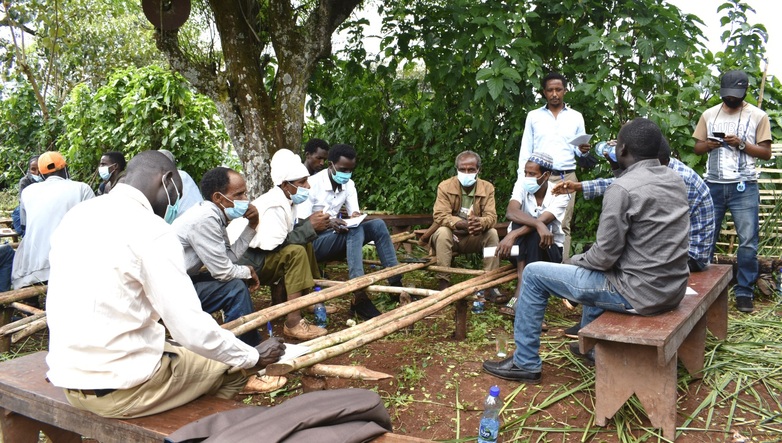Promoting participatory and integrated land-use planning in Ethiopia
Project description
Title: Participatory Land Use Planning (PLUP) Project
Commissioned by: German Federal Ministry for Economic Cooperation and Development (BMZ)
Country: Ethiopia
Lead executing agency: Environment, Forest, and Climate Change Commission (EFCCC)
Overall term: 2019 to 2021

Context
In Ethiopia, the laws and procedures in place to regulate urban and rural land use lack clarity and intersectoral involvement. This causes discrepancies between the national and regional levels and negatively impacts social, environmental and economic affairs. Planning and decision-making processes also lack transparency and do not sufficiently address the needs of vulnerable groups such as women, ethnic minorities and young people.
The Ethiopian government’s Growth and Transformation Plan (GTP) II recognises the need for a robust and integrated land-use plan and policy. It has responded by setting up the National Integrated Land Use Planning and Policy (NILUPP) Office to pursue this goal. NILUPP works under the auspices of the Environment, Forest and Climate Change Commission and its mandate is to coordinate and develop cross-sectoral land-use planning at federal, regional and district level.
The PLUP project supports the successful implementation of the NILUPP roadmap, which outlines the activities and processes required to coordinate these planning processes at different levels.
Objective
Ethiopia is testing the principles, standards and instruments of participatory land-use planning at federal, regional, and local levels.

Approach
The project takes a multi-pronged approach that includes:
- Awareness Raising by facilitating multi-stakeholder dialogues
- Growing local capabilities by enhancing the skills, knowledge and technical know-how of decision-makers, civil society organisations (CSO), and local land users
- Consolidating the Institutional Framework by improving the institutional capabilities of planning institutions
- Promoting Application and Learning by ensuring that the developed methods, standards and procedures are tested in two pilot regions
Last update: November 2021